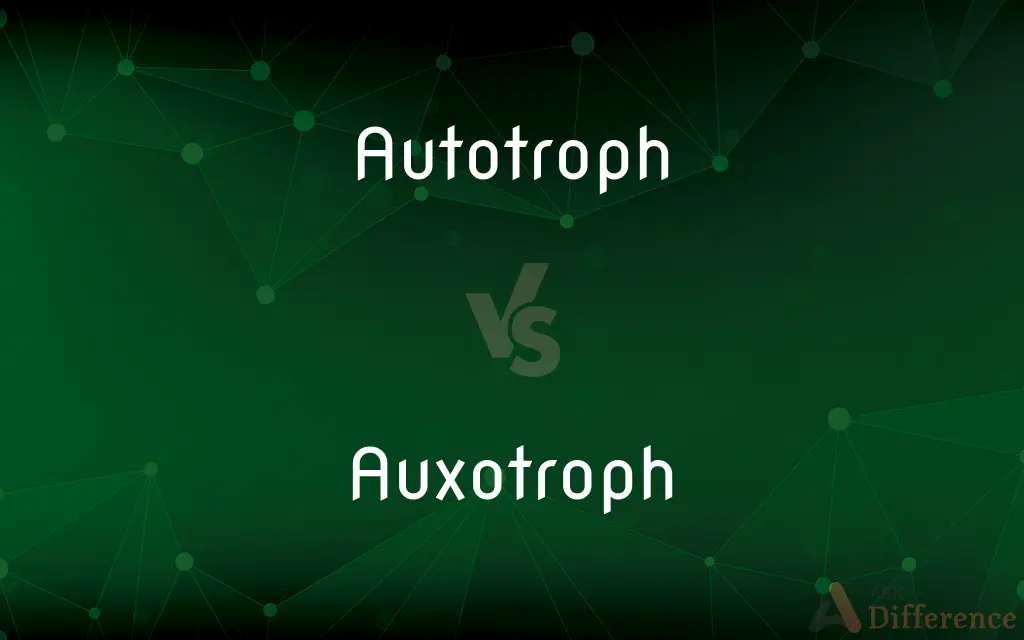Autotroph vs. Auxotroph — What's the Difference?

Difference Between Autotroph and Auxotroph
ADVERTISEMENT
Compare with Definitions
Autotroph
An autotroph or primary producer is an organism that produces complex organic compounds (such as carbohydrates, fats, and proteins) using carbon from simple substances such as carbon dioxide, generally using energy from light (photosynthesis) or inorganic chemical reactions (chemosynthesis). They convert an abiotic source of energy (e.g.
Auxotroph
A mutant organism (especially a bacterium or fungus) that requires a particular additional nutrient which the normal strain does not.
Autotroph
An organism that is able to form nutritional organic substances from simple inorganic substances such as carbon dioxide.
Auxotroph
An organism, such as a strain of bacteria, that has lost the ability to synthesize certain substances required for its growth and metabolism as the result of mutational changes.
Autotroph
An organism capable of synthesizing its own food from inorganic substances, using light or chemical energy. Green plants, algae, and certain bacteria are autotrophs.
ADVERTISEMENT
Auxotroph
Any microorganism that has lost the ability to synthesize an organic compound required for its growth, usually as a result of mutation
Autotroph
(ecology) Any organism that can synthesize its food from inorganic substances, using heat or light as a source of energy.
Autotroph
An organism which is autotrophic, i. e., an organism (such as most plants and certain microorganisms) which are capable of synthesizing its own food from simple organic substances, requiring only minerals as nutrients for growth, and using carbonate or carbon dioxide as a source of carbon and simple inorganic nitrogen as a nitrogen source; the energy required is derived from photosynthesis or chemosynthesis. Opposed to heterotroph. See also auxotroph.
Autotroph
Plant capable of synthesizing its own food from simple organic substances
Share Your Discovery

Previous Comparison
Space vs. Void
Next Comparison
Herein vs. Hereof














































